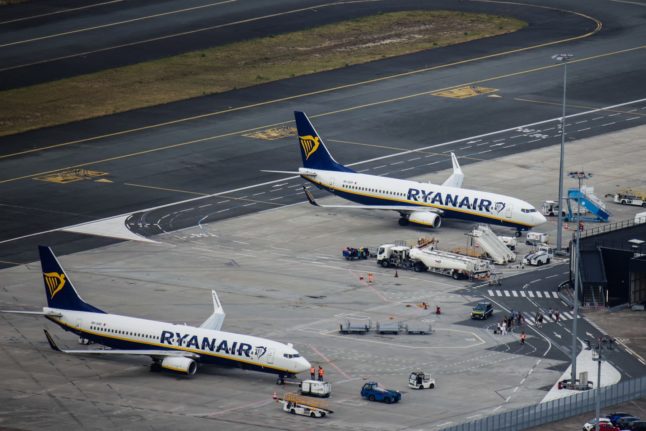“The airport I think wants to double our cost, we’re not willing to pay double the cost at Bordeaux,” Michael O’Leary, head of the low-cost Irish airline, told AFP.
“I think there’s a real risk we might close the base in Bordeaux maybe at the end of the summer season,” he said on the sidelines of an airline conference in Brussels.
“We have three aircraft based there, we’ve got a very successful operation, lots of good employees. But if the response of the airport is ‘pay us double the fees’, the answer is no. We’ll move the aircraft somewhere else.”
The airport said in a statement to AFP that it “regrets that Ryanair has informed its employees, without talking to Bordeaux airport, of the possibility of closing its base”.
It added that it “is regrettable that Ryanair and its management make totally erroneous comments about the level of charges at the airport”.
On Tuesday, the SNPNC-FO union expressed its “profound concern” about Ryanair’s threats, which it said concerned 120 jobs.
Bordeaux-Merignac in 2023 was the eighth busiest French airport with 6.6 million passengers.
However, this figure is just 85.5 percent of pre-Covid 2019 levels whereas the average for French airports was 92.7 percent.
Bordeaux’s airport was particularly hit by the end of its flights to Paris, victim of a French government ban on any domestic flights that can be replaced by train in less than three hours.



 Please whitelist us to continue reading.
Please whitelist us to continue reading.
Anytime I fly to Bordeaux from Dublin I always fly by Aer Lingus, I have never had a good experience with Ryan Air and always look for an alternative – even if it’s more expensive.